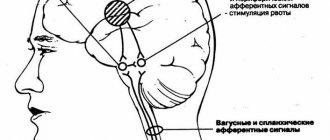Despite the knowledge of physiological processes, each woman’s pregnancy is unique. There is a difference in everything - from what first signs of pregnancy the expectant mother will notice, and ending with how her well-being will change at the time of childbirth. Even the same woman who has given birth to several children may have different pregnancy symptoms each time.
In addition, the first signs of pregnancy may feel similar to the sensations before and during menstruation, so the woman does not immediately understand that conception has occurred. In this article, Women First experts talk about symptoms that may indicate pregnancy.
When might the first signs of pregnancy appear?
In gynecology, the gestational age is counted not from the moment of actual conception, but from the last day of the last menstruation. The duration of pregnancy is measured in weeks. They are called "obstetric weeks." Depending on the processes occurring in a woman’s body, each obstetric week has its own characteristics.
Let's look at the sensations during pregnancy week by week:
| Obstetric weeks | Signs and symptoms |
| 1-4 | moderate cramping and discharge |
| 4-5 | fatigue |
| 4-6 | nausea |
| 4-6 | tingling or chest pain |
| 4-6 | frequent urination |
| 4-6 | bloating |
| 5-6 | seasickness |
| 6 | mood swings |
| 6 | temperature changes |
| 8 | high blood pressure |
| 9 | severe fatigue and heartburn |
| 8-10 | cardiopalmus |
| 11 | breast and nipple changes |
| 11 | acne |
| 11 | noticeable weight gain |
Now let’s look at the symptoms of pregnancy in the early stages with delayed menstruation, which are more common than others.
Important!
Some symptoms do not only occur in pregnant women. They can be a manifestation of diseases. We recommend that you consult a doctor if there are any changes in your health.
Control fluctuations in basal temperature
If you are planning to conceive, chart your temperature. Before the date of ovulation, it usually does not exceed 36 degrees. At the moment the egg is released, the indicator increases by approximately one division.
If the formation of a zygote does not occur, the temperature will return to its previous level. And in the event of the birth of a new life, the value will remain at 37 .
Delayed menstruation (missed menstrual cycle)
If the menstrual cycle is regular, lasts on average 28 days, ovulation occurs and occurs on days 14-15, then the absence of menstruation on time may indicate pregnancy.
The delay is due to the fact that after conception the hormone hCG (human chorionic gonadotropin) begins to be produced, which maintains the normal course of pregnancy and prevents the egg from maturing in the next cycle. Accordingly, the expected menstruation does not begin. Other symptoms of pregnancy in the early stages may not yet appear if there is a delay.
It is worth noting that a missed period is not always the first sign of pregnancy. With an irregular cycle, nervous strain, or past illnesses, such cycle disturbances may indicate other processes in the body. Delay may also result from discontinuation of oral contraceptives.
To avoid guessing and worrying once again, you should use a home test to determine pregnancy in the early stages. Most of them will show pregnancy within 8 days after the missed cycle. An option for finding out if a woman is pregnant without a test is to donate blood for hCG in a laboratory.
Clue
- Take a pregnancy test.
- If the result is positive, make an appointment with your doctor.
- If you are taking any medications, ask your doctor if they are dangerous for you and your baby.
Another important point is that in the first trimester bleeding may occur, which can be mistaken for menstruation. Because of this, women do not notice pregnancy in the early stages, especially if there are no unusual sensations.
On what day do the first signs appear?
For conception to occur, a combination of certain factors is necessary:
- ovulation must occur;
- the presence of viable sperm in the fallopian tubes;
- absence of gynecological pathologies and hormonal abnormalities in women.
When does ovulation occur? In women with an average menstrual cycle of 28–30 days, the egg is released and the follicle is released in the middle of the cycle – 12–16 days after the start of menstruation. If at this moment she meets a sperm, then the probability of conception is approximately 35–40%.
The main ghost of ovulation is copious white discharge that stretches well and looks like a raw egg block. Other symptoms - soreness and sensitivity of the mammary glands, nipples, pulling sensations in the lower abdomen, headache, increased libido - appear in women with varying degrees of intensity, or may be completely absent.
If the intervals between critical days differ from the statistical average, then to find out the day of ovulation, you need to subtract 14 from the number of days in the cycle. With irregular periods, it is difficult to calculate the date of release of the egg; you need to use special tests.
But pregnancy after fertilization does not occur immediately; after the fusion of the female and male cells, the division of the egg begins, while it actively moves through the tubes into the uterine cavity. This process takes on average 10–12 days, during which time the endometrium becomes loose and progesterone begins to be actively produced - these conditions are necessary for normal childbearing.
Table “On what day of the cycle may signs of pregnancy appear”
| Cycle length (days) | Approximate date of ovulation (cycle day) | When signs of pregnancy may appear (day of cycle) |
| 21 | 5–9 | 15–19 |
| 24–25 | 10–11 | 20–22 |
| 26–30 | 12–16 | 22–27 |
| 31–32 | 14–18 | 24–29 |
| 33–35 | 19–21 | 29–32 |
| 36–38 | 22–24 | 32–35 |
| 38–40 | 24–26 | 34–36 |
Important! After leaving the follicle, the egg lives no more than 48 hours, but sperm under favorable conditions can remain active in the fallopian tubes for 3–7 days. Therefore, not only the day of ovulation, but also the 5 days before and after are considered favorable for conception.
Fatigue
What other sensations are most often noted during early pregnancy? This is fatigue, lethargy and drowsiness. They can appear at any time, and this is quite normal. But at the very beginning, many women notice that they often want to lie down and it becomes more difficult to wake up.
This condition may be associated with several factors: an increase in the level of the hormone progesterone, a decrease in blood pressure, an increase in blood production, and a decrease in blood sugar concentration.
Clue
- Try to get enough sleep and follow a routine.
- Walk outside more and regularly ventilate the rooms you are in. Before going to bed, try to ventilate the bedroom.
- Add foods high in iron and protein to your diet.
Symptoms of conception during fertilization of the egg in the third and fourth weeks after fertilization
The third and fourth weeks of pregnancy are accompanied by a pronounced symptomatic picture. During this period, the embryo has successfully implanted into the wall of the uterus and begins active growth.
The main symptoms of pregnancy are:
- emotional lability;
- increase in size and the appearance of soreness of the mammary glands;
- drowsiness;
- fatigue;
- bloating;
- disruption of the gastrointestinal tract;
- libido change.
Breast changes: tingling, pain, growth
The period when breasts begin to grow during pregnancy occurs at 4-6 weeks. At this time, due to changes in hormonal levels, a woman may feel tingling, she may get the impression that her breasts have become heavier or larger, swelling has appeared, and sensitivity has increased.
These sensations during early pregnancy go away as soon as the body adapts to the new level of hormones.
By week 11, visual changes may become noticeable: an increase in breast size, enlargement and darkening of the areola (the area around the nipple).
Clue
- Don't be afraid of changes. To make it more comfortable, you can use breast care creams during pregnancy.
- Choose 1-2 comfortable bras. Cotton models with adjustable volume, without wires and lace inserts are very comfortable. They can be worn throughout the entire period of pregnancy and lactation.
- Use breast pads, such as bamboo ones. They are inserted into cups and reduce friction between underwear and skin.
Changes in the 1st week of pregnancy
Pregnancy is definitely a magical time for every woman. The awareness that a little person is developing inside inspires and endows with new, sometimes completely unexpected qualities. Feeling concern for the well-being of the baby, taking care of him from the first moments of his life, giving your love even at the moment when the baby is still inside the mother’s body - these are natural impulses. But in the first seven days after conception, a woman is unlikely to feel these emotions.
Unusual, but almost imperceptible biological processes take place in her body. An egg fertilized by a sperm is just beginning its journey of transformation. It first moves down the fallopian tube to reach the uterine cavity. This takes time - three to four days. During the movement, it does not stop changing: the number of cells in it increases. And approximately on the seventh or eighth day after conception, the microscopic embryo is “embedded” in the wall of the uterus.
The uterus itself is preparing to receive the embryo. Its structure has not yet changed, so it is impossible to notice external signs of pregnancy in the 1st week, much less an enlarged abdomen. Changes occur only in the mucous membrane of the uterus - the endometrium. It increases in volume and becomes loose to allow the fertilized egg to sink deeply into it and attach to the wall of the uterus. From this moment and over the next nine months, the endometrium will not be rejected, which means that the next menstruation will not occur. The body moves to a new stage - pregnancy.
pixabay.com/
Cramps, discharge
Changes in the female body occur from the first week of pregnancy, but the signs of these changes are not always specific. For example, discharge and cramps that are caused by the attachment of the embryo to the uterus:
- During the first 5-6 days from the moment of conception, a blastocyst develops - several hundred cells at the preimplantation (before implantation) stage of embryo development. In the future, these cells will form the child’s organs.
- After 10-14 days (approximately 4 obstetric weeks), the blastocyst is implanted into the endometrium (the mucous tissue lining the inside of the uterus). During implantation, bleeding may occur, which makes it difficult to recognize pregnancy in the early stages - the sensations are close to those during menstruation.
The duration of implantation bleeding is less than during menstruation. Usually the discharge ends within 1-2 days. The discharge has features that are taken into account when determining pregnancy in the early stages.
4 common signs of implantation bleeding:
- Pain.
The pain can vary in intensity, from mild to severe. A study was conducted among 4,539 women, which showed that in 28% of study participants, discharge was accompanied by pain1. - The color of the discharge
varies from pink or red to brown. This is fine. - Bleeding.
The intensity of the discharge is most often compared to regular menstrual flow. - Episodes.
Bleeding during embryo implantation normally lasts no more than 3 days. It is not a reason for treatment or concern.
The cramps that can accompany implantation bleeding are similar to menstrual cramps, so many women mistake these sensations for a normal period.
In addition to bleeding, a pregnant woman may have white or milky discharge, which is associated with the growth of cells lining the vagina. Such discharge may be present throughout pregnancy.
Advice.
If there is a burning sensation, itching, or an unpleasant odor from the discharge, you should consult a doctor. The changes may be due to an infection that requires treatment.
Period of egg fertilization
The period of fertilization of the egg is determined by the period of its viability. After the mature oocyte leaves the follicle, the germ cell retains the ability to fertilize for 12-24 hours. During this time, the sperm must penetrate the egg. If this does not happen, the oocyte completes its life cycle. The next opportunity to conceive will come in a month.
Nausea and vomiting
If we talk about what sensations during early pregnancy cause the most discomfort to women, then these are nausea and vomiting. They usually appear in the morning (morning sickness), starting at 4-6 weeks. For some women, unpleasant symptoms may appear both during the day and in the evening.
There is no exact scientific explanation for morning sickness, but it is attributed to the action of hormones. The intensity of sensations changes. In the first trimester, nausea can be mild or severe, but it usually intensifies towards the end of the trimester (by week 12), and in the first half of the second trimester, the unpleasant symptoms weaken or disappear completely. There are cases when ailments continue throughout pregnancy, but still their intensity decreases.
Some pregnant women may experience changes in their taste preferences. You may want some foods that were not previously present in your diet. Or vice versa, your favorite dishes can cause rejection.
Clue
- Before you get out of bed in the morning, eat a few saltine crackers. Prepare them in advance, the evening before. Lie down for a few minutes, only then slowly get up.
- Drink more water. When vomiting, the body loses fluid; if the water balance is not replenished, dehydration may occur, which can have negative consequences for mother and baby. Therefore, it is extremely important to maintain a drinking regime.
- Call your doctor if you are unable to keep fluid down in your stomach. This point follows from the previous one. The specialist will take measures to prevent dehydration.
It is equally important to balance your diet so that the body receives all the necessary substances. To avoid vomiting, it is better to eat small portions 4-5 times a day. Your doctor will help you create a menu.
Good to know.
Morning sickness and vomiting are symptoms of pregnancy in the early stages with a delay, which, perhaps, everyone knows about. But they are not found in every woman. At the very beginning, pregnancy may occur without symptoms.
What do you know about nine months of pregnancy?
Pregnancy lasts nine months, right? It seems something like this. It is believed that it is more accurate to say 40 weeks (almost 10 months) and count from the first day of your last cycle. Babies are often born a couple of weeks earlier or later than expected. Besides, there are just over four weeks in a month. However, sometimes it is difficult to determine the specific date of conception. So, taking all this into account, nine months is a fairly arbitrary period. This is why gestational age is usually measured in weeks rather than months. You'll often hear "week 12" or "at week 32." Another important category is the so-called trimester.
- First trimester: 0–13 weeks
- Second trimester: 14–27 weeks
- Third trimester: 28–42 weeks
So how can you tell how many months pregnant you are? There are different calculation methods. Typically, you find out you're a month pregnant between the fifth and eighth week. These are the weeks that have passed since your last cycle. Remember that you may have conceived a few weeks earlier than the first month of pregnancy.
Due date calculator. In the first month of pregnancy, you will definitely want to know when you are due to give birth. The Pampers due date calculator makes it easy to find out your expected due date. If you have an irregular cycle or don't remember the date of your last period, your doctor can run tests to find out how long you've been pregnant.
High blood pressure and dizziness
From the first week of pregnancy, one of the signs may be dizziness. It is caused by dilation of blood vessels and a decrease in blood pressure.
High blood pressure (BP) is more difficult to determine during early pregnancy. An increase in blood pressure is not always accompanied by any sensations. But almost always, hypertension up to 20 weeks is not associated with the fact that the woman is pregnant. More often than not, this is a symptom of some kind of health problem.
Your doctor will help you determine your basic blood pressure readings at your first appointment. He will also give recommendations on maintaining normal values.
Clue
- If there are no contraindications, do physical exercises recommended for pregnant women.
- Follow your doctor's advice to control your blood pressure. Find out how to take measurements correctly and what to do in case of deviation from the norm.
- Ask your doctor about which foods to include in your diet and which to avoid to help stabilize your blood pressure.
- Maintain drinking regime. Avoid sudden movements. Try to bend over or stand up calmly and smoothly.
Doctor's advice to women in the first month of pregnancy
Pregnancy is not a disease, but a natural physiological process. If you comply with certain conditions and listen to the recommendations of doctors, it proceeds safely and ends with the birth of a healthy child. To do this, you need to follow simple rules:
- Organize your daily routine correctly. Night rest should not be less than 8-9 hours. If you feel tired during the day, rest and relax. Try to get plenty of sleep and don't overexert yourself. Allow your loved ones to take care of you;
- reconsider your diet. Introduce more fresh vegetables and fruits rich in vitamins and minerals. Do not overuse strong tea, coffee, candy, sugar and other sweets. Balance your diet; it must contain the required amount of proteins, carbohydrates and fats. Consume only fresh and high-quality products;
- try not to restrict movement. Walking, jogging, light exercise, daily exercise and walks help improve well-being;
- pay attention to your environment and protect yourself from unfavorable factors. The cause of poor health may be excessive noise at work or at home, poor lighting, polluted air;
- try to create a pleasant emotional background for yourself. This could be reading an interesting book, listening to your favorite music, communicating with people you like.
- If you suddenly feel unwell or notice any sign that is dangerous to your health and threatens your pregnancy, call medical help immediately. Before she arrives, you need to lie down and move less. Tell your doctor in detail about how you feel.
Frequent urination and urinary incontinence
During pregnancy, the volume of blood in the circulatory system increases, so more urine is released. At the same time, the pressure of the uterus on the bladder increases. The changes may result in a frequent urge to go to the toilet or spontaneous leakage of urine.
Clue
- To avoid getting into an unpleasant situation, use special gaskets.
- Don't give up drinking. Drink enough water, you can even increase your daily volume by 300 ml.
- Don’t be impatient and don’t put off going to the toilet—it’s better to go there in advance.
Sensitivity to odors
One of the differences between PMS and pregnancy before pregnancy is an increased sensitivity to odors or a distortion in the perception of odors. Previously pleasant smells can become unpleasant and cause nausea, and you may like aromas that you previously did not pay attention to.
There is little scientific work explaining odor sensitivity. But there is a review2 based on long-term observations (from 1922 to 2014), which states that in the first trimester of pregnancy, women report an increased intensity of odors.
Possible problems
A quarter of all gestations end in spontaneous abortion at 1 month of pregnancy. Most often, the woman does not even suspect what happened. Menstruation begins as usual or with a delay of a couple of days, bleeding may be a little heavier than usual. Let us list those complications for which medical care is necessary to save the life of the mother and unborn child.
Progesterone deficiency, or corpus luteum deficiency
The corpus luteum is responsible for the production of progesterone and the attachment of the fertilized egg to the wall of the uterus. Due to chronic sexual diseases and endocrine pathologies, the hormone is sometimes not enough, which, if left untreated, leads to infertility. Pathology can be suspected by slight brown discharge and pain in the lower abdomen in the second half of 1 month of pregnancy. For an accurate diagnosis, ultrasound and blood tests are required. The condition is successfully corrected by taking hormone-containing drugs.
Ectopic pregnancy
If the fertilized egg does not reach the uterus in time, pregnancy is impossible, and the condition is dangerous because it can lead to rupture of the fallopian tube, female infertility, and large blood losses. Diagnosis is made using ultrasound and a test for hCG, which rises unevenly in ectopic pregnancy. The condition can be suspected by a sharp deterioration in health, increased temperature, and abdominal pain. Treatment is surgical.
Weight gain
Weight gain becomes noticeable towards the end of the first trimester. The gain can range from 500 grams to 2 kilograms in the first few months. Early pregnancy calorie needs are not much different from normal, but they will increase as pregnancy progresses.
At later stages, the weight is distributed as follows:
- chest (from 500 grams to 1.5 kilograms);
- uterus (about 1 kilogram);
- placenta (about 500 grams);
- amniotic fluid (about 1 kilogram);
- increased volume of blood and fluid (about 2-3 kilograms);
- fat (from 2.5 to 4 kilograms).
How many days after conception do real pregnancy symptoms appear?
The first real signs of pregnancy appear after the embryo implants into the endometrium of the uterus. Until then, all symptoms are subjective.
The first days after fertilization are not accompanied by specific clinical manifestations.
The severity of symptoms will increase as the embryo grows. Experts note that at 5-6 weeks of gestation, a woman can determine the presence of pregnancy without a test by the corresponding symptoms.
Heartburn
Hormones can cause the valve between the stomach and esophagus to relax. This allows stomach acid to leak out, causing heartburn.
Before using heartburn medications (antacids), be sure to consult your doctor. Some antacids (drugs that reduce the acidity of gastric juice by neutralizing hydrochloric acid) can negatively affect the health of the unborn baby.
Clue
- Eat small meals several times a day.
- After eating, try to remain upright for about an hour so that the food can be properly digested.
- Do not take antacids without consulting your doctor.
Change in well-being
After pregnancy occurs, minor discomfort may occur almost immediately. Unreasonable fatigue from minimal exertion appears and performance decreases. This is explained by the beginning of changes in the woman’s body.
In the first days of the birth of a new life, an increase in body temperature is often observed, so an attentive woman who wants to get pregnant will definitely note this factor. Sometimes this symptom is attributed to a cold, especially if a runny nose, sore throat and cough also appear. Such symptoms indicate a decrease in immunity against the background of the ongoing restructuring. The illusion of a cold can persist for several days, and then disappears without any treatment, which indicates that the body has “adapted” to the new condition.
How to understand that you are pregnant if there are no typical symptoms?
How to recognize pregnancy in the early stages if a woman does not have the most common symptoms? Other manifestations may indicate an interesting situation:
- Bloating and constipation
. Due to the increase in progesterone levels, the bolus begins to pass through the intestines more slowly, which can cause constipation. Drink more water, exercise, and eat plenty of high-fiber foods. - Mood swings.
Estrogen and progesterone levels increase during pregnancy. This can affect your mood. The symptom is subtle, since increased emotionality can also indicate premenstrual syndrome. There are practically no differences between PMS and pregnancy before the delay. But after confirming pregnancy, we recommend paying attention to your psychological state, as severe irritability and mood swings can turn into depression. - Headaches and back pain.
Some women report mild headaches and back pain.
Can pregnancy proceed without symptoms? Yes, this is possible in the early stages. Symptoms may be absent or may not attract the woman’s attention.
Tests and ultrasound
There is still a long way to go before pregnancy registration. However, if you are planning to conceive, then you should undergo simple research before doing so. This will help to diagnose possible complications in a timely manner and minimize risks during pregnancy.
One of the most important tests is a test for sexually transmitted infections. Many of them are asymptomatic, but significantly affect the ability to conceive and the development of the fetus in the future. To understand whether the body is ready for the 9-month test, you also need to pass:
- general blood and urine tests;
- gynecological smear;
- test for blood group and Rh factor;
- tests for HIV, hepatitis and syphilis;
- do an ultrasound of the uterus and ovaries.
If you have any chronic diseases, especially endocrine or cardiovascular diseases, consult with a specialized specialist regarding the possibility of pregnancy and how it will affect the course of your pathology.
Symptoms subside in the second trimester
During pregnancy, you may experience all of these signs and symptoms, and some women may only experience one or two. Many of these symptoms you experience in the first trimester will begin to disappear in the second trimester. Be sure to tell your doctor about any symptoms that interfere with your daily life.
Womenfirst
- Pregnancy, childbirth, the first years of a child’s life: to help the expectant mother: [16+] / Larisa Anikeeva. — St. Petersburg: All, 2018.
- Obstetrics and gynecology. 2021, No. 2.
- Obstetrics and gynecology 4th edition revised 2019.
- Research methods in gynecology: educational manual / S. P. Pakhomov, O. B. Altukhova, E. V. Zhernakov 2018
- Educational and methodological manual for classes in the discipline “Gynecology” T. A. Ayvazyan Eco-Vector, 2021.
RUS2216258 (v1.0)










